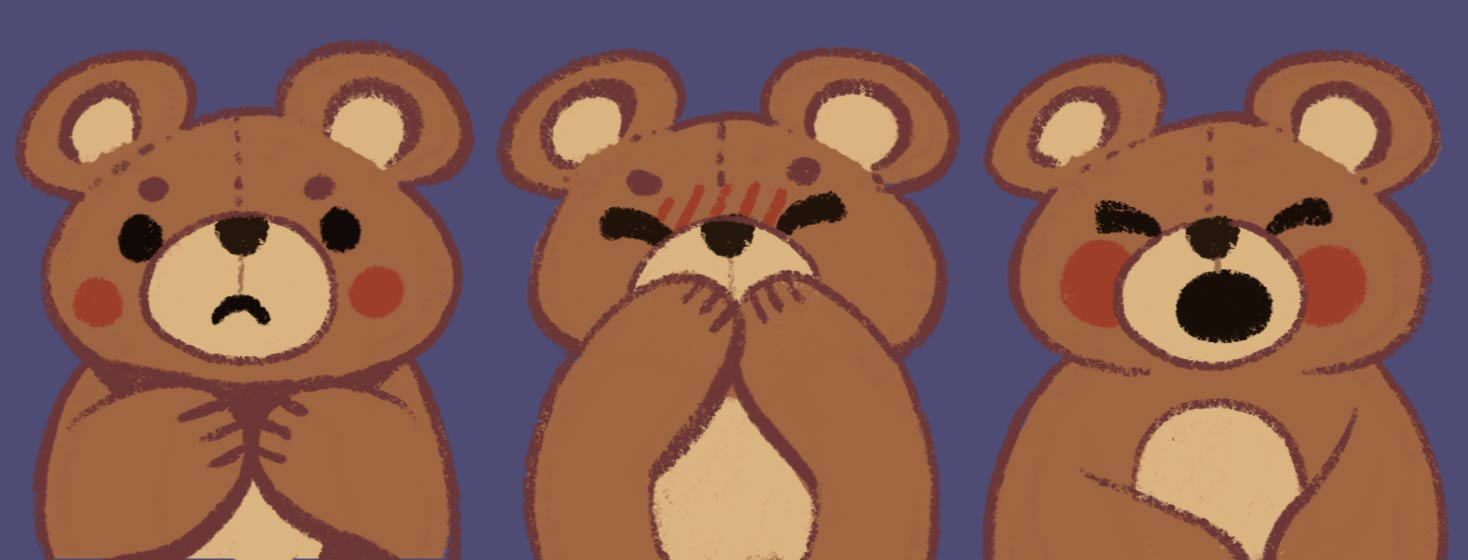5 Warning Signs of Asthma in Children
Along with being an asthmatic, I’m also the parent of three asthmatic children. I had some pretty bad experiences with asthma as a kid myself, and won’t let my kids go through that. So, they definitely benefit from my experiences, because I watch, or listen, closely to these five warning symptoms of asthma in children.
5 asthma warning symptoms in children
Coughing
As a kid I would cough a lot, especially during the night. I remember sometimes I would cough so persistently that my parents would worry with me, but not know what to do. Thankfully, we are now aware that coughing is a very common sign of asthma in children, a sign that something needs to be done.
When my asthmatic daughter wakes me up due to a coughing spell, the first thought that crosses my mind is: “Is it asthma?” Related signs: waking up at night, dark circles under eyes.
Constantly rubbing the nose
This was a constant bugger with me, to the point that I rubbed my nose so much my septum went crooked requiring surgery in my early 20s. Today, we understand this is a telltale sign that your child has been exposed to a potential asthma trigger.
Examples here are common allergens and viral infections, both of which can cause nasal irritation. Sometimes nasal irritation (and nose rubbing) can occur long before asthma flares up, giving you time to take action to remedy the situation. So, be on the lookout for nose rubbing. Related signs: constantly rubbing the eyes, runny nose, stuffy nose, sneezing.
Constantly rubbing or scratching throat, or clearing throat
This is a common sign that your child has been exposed to an asthma trigger, such as the common cold or common allergens, such as dust mites, pollen, mold spores, etc.
These allergens may cause an itchy throat, resulting in grunting noises to scratch it. These may also result in increased phlegm, resulting in throat-clearing noises. These can be annoying sounds, although they are also symptoms of asthma in children. Related signs: bringing up phlegm, spitting.
Rubbing face and scratching head, chin, or neck
Sometimes the allergies get so horribly awful that it feels as though your entire face and scalp itch. So, the most logical solution to this is to vigorously rub your face, rub your nose, scratch your scalp, scratch your chin, pull on your hair. This is a sign that allergies have gotten the best of your child, and that you’ll need to take some action to remedy the situation. Related signs: allergy symptoms, cold symptoms, snotty nose, puffy eyes, eczema flare-up.
Anxiety, restlessness, or mood changes
True, there are many causes of anxiety. Still, as you can imagine, any of the above may cause quite a bit of irritation, especially when you don’t understand what’s going on and don’t know what to do about it.
So, as the parent of a child asthmatic, if you observe the signs of anxiety, a good question to ask is, “Is it asthma?” If you surmise it is, quick action could stave off an impending asthma attack, or end one that’s ongoing. Related signs: increased tiredness, irritability, grouchy, very quiet.
Featured Forum
View all responsesWhat if I recognize asthma symptoms in my child?
So you observe these asthma symptoms in your child, now what? Actually, by observing any of these five signs, and recognizing it as a possible warning symptom of asthma, you are doing your child a huge favor.
Now you can refer to your child’s personalized and written asthma action plan to decide what actions need to be taken, and when to call your child's pediatrician for help.

Join the conversation